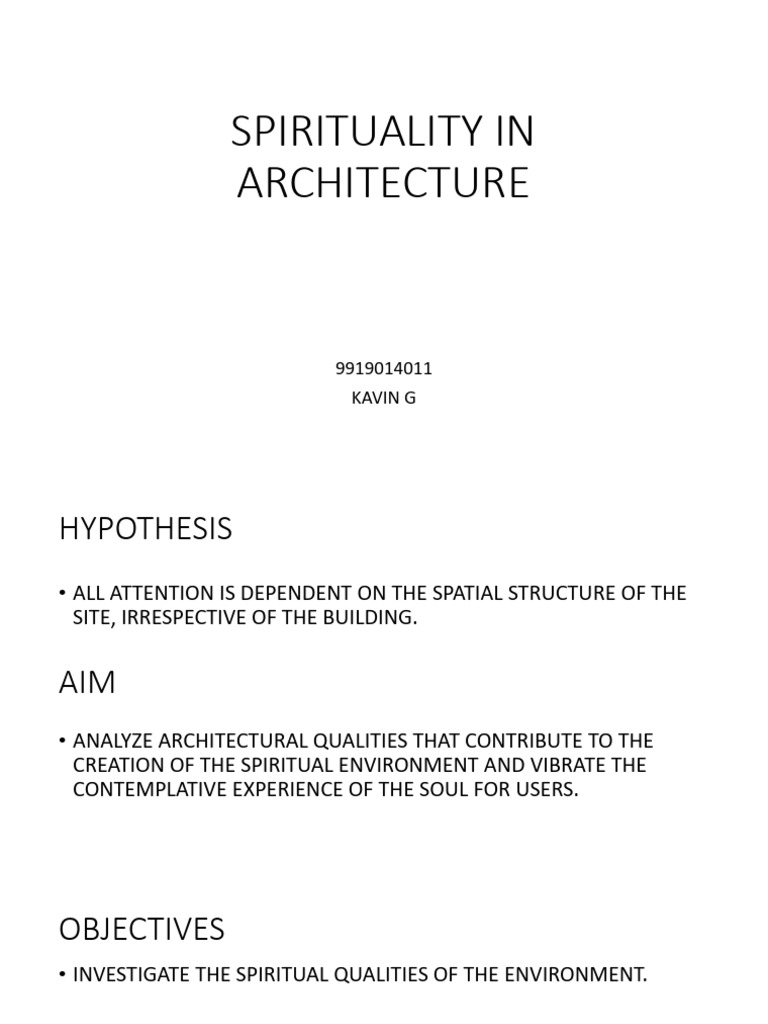In exploring the mystical realms of the Baha’i teachings, one may ponder: How can one effectively cultivate the spiritual architecture of the mind? This inquiry is not trifling; rather, it presents an intricate challenge—one that demands rigorous introspection and dedication. Much like the construction of a physical edifice, the development of a spiritually rich and resilient mind necessitates careful planning, intimate knowledge of materials (in this case, virtues and spiritual principles), and sustained effort over time.
The Baha’i teachings assert that the mind, when imbued with spiritual qualities, reflects the innate potential of humanity. Therefore, the journey towards spiritual enlightenment is not merely a personal endeavor, but a collective obligation that enhances the very fabric of society.
To begin constructing this profound mental architecture, one must first understand the foundation—love and unity. Love, as expressed in Baha’i philosophy, transcends mere affection; it embodies an unwavering commitment to the welfare of others. Unity, conversely, serves as the scaffolding that supports an interconnected community of believers and seekers. By cultivating these virtues, individuals can establish a solid base for their spiritual development.
Building upon this foundation, one must then integrate the principles of knowledge and wisdom. Knowledge in the Baha’i context is heralded as a double-edged sword; it enlightens the seeker while simultaneously demanding a corresponding moral responsibility. The teachings suggest that we must strive not only to acquire knowledge but also to apply it in a manner that uplifts ourselves and our communities. Engaging in studies that delve into the rich tapestry of spirituality, history, and science becomes imperative as one endeavors to harmonize the inner workings of the mind.
Moreover, wisdom directs our understanding and application of knowledge. It allows for discernment, enabling one to navigate the complexities of life with grace and equanimity. Through meditation and reflection, practitioners of the Baha’i faith can refine their decision-making processes, ensuring that their actions resonate with divine principles.
As we continue to chart our path, the incorporation of virtues such as trustworthiness and justice becomes indispensable. Trustworthiness is not merely a social expectation; it is a spiritual mandate that fosters confidence and cohesion within communities. By embodying trustworthiness, individuals demonstrate a commitment to truth and integrity, which are central to the Baha’i understanding of spiritual governance.
Justice, too, plays a pivotal role in the overarching narrative of personal and communal development. The Baha’i teachings advocate for a just society, one where each individual’s rights are upheld and where equity prevails. The diligent pursuit of justice transforms the mind, urging us to challenge ingrained prejudices and biases, thus constructing a more equitable mental framework.
Yet, the path is not devoid of obstacles. The ego, characterized by pride and self-importance, often emerges as a formidable adversary. To construct a robust spiritual architecture, one must grapple with the ego’s tendencies toward separation and divisiveness. The Baha’i teachings illuminate the importance of humility as a counterbalance to this innate human limitation. Humility cultivates open-mindedness and encourages seeking guidance beyond oneself—whether through prayer, consultation with others, or studying sacred texts. It serves as a guiding light in the sometimes turbulent waters of self-perception.
As we delve deeper, the significance of perseverance cannot be overemphasized. Building the spiritual architecture of the mind is akin to constructing a grand temple—it requires unwavering dedication and resilience in the face of adversity. The Baha’i teachings offer profound insights into the power of prayer and meditation, emphasizing the importance of consistent spiritual practice. These rituals not only connect individuals to the Divine but also strengthen their resolve to face life’s challenges.
Through perseverance, individuals are better equipped to manifest the virtues of patience, compassion, and forgiveness. Each of these qualities contributes to a holistic understanding of the self and the world around us. Patience allows for growth, while compassion fosters empathy and understanding among diverse groups. Forgiveness, too, is central—freeing the mind from the shackles of resentment and allowing for emotional and spiritual liberation.
Furthermore, the active engagement in service to others is crucial in the quest for spiritual enlightenment. Service is not merely an action; it is fundamentally interwoven with the Baha’i belief that the true purpose of life is to contribute to the betterment of humanity. By serving others, individuals cultivate a sense of belonging and interconnectedness. This, in turn, fortifies their spiritual architecture, as they generate positive change within their communities.
In conclusion, cultivating the spiritual architecture of the mind through the Baha’i teachings is a multifaceted endeavor that calls for love, unity, knowledge, wisdom, trustworthiness, justice, humility, perseverance, and service. Each element contributes to the holistic development of an individual, transforming them into a beacon of light within their community. However, this journey may pose challenges, requiring steadfast commitment and a willingness to confront the barriers erected by the ego. As individuals undertake this profound quest, they become integral architects of their spiritual destiny, ultimately fostering a more peaceful and unified global community.
